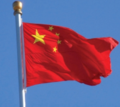The Sotomayor Hearings: Supreme Court Citations to International and Foreign Law
As the Senate hearings addressing the nomination of Judge Sonia Sotomayor to the United States Supreme Court proceed through the thickets of legal concerns, one issue that appears to be rather arcane to the average American may be among the most significant. Indeed, it reflects a philosophical dispute that underlies many of the questions at the hearings. Does Judge Sotomayor believe the Supreme Court should be able to cite international and foreign law in its decisions? Let’s be frank: considering some of the esoteric sources cited in many Supreme Court opinions, why would anyone spend more than a moment on what sources the Court will refer to? Yet, this issue has become a focus of significant debate.
Although many members of the Court have cited to international and foreign law at one time or another (including Justices William Rhenquist, Antonin Scalia, Sandra Day O’Connor), none have asserted that international and foreign law have any determinative or precedential value in the U.S. legal system. Moreover, citation to international and foreign law in common law cases has rarely been challenged. Rather, the issue is centered on the reference to international and foreign law when the Court is addressing the Constitution. In fact, this issue has served as a cloak for the ongoing debate between the “originalists” (those who assert that the original wording of the Constitution and its context at the time are the sole measure as to the meaning of the Constitution) and the “evolutionists” (those who assert that we must measure the meaning of the Constitution with at least an eye on its contemporary context) over the appropriate way to interpret the Constitution. In effect, the “originalist” argument states that to allow reference to foreign and international law is not merely to align oneself with foreign interpretations that could be inconsistent with the context of American constitutional law (because the sources and therefore the meaning arises in different contexts), but that the use of these foreign sources undermines the very meaning of the Constitution’s drafters and by implication American sovereignty itself. Therein lies the bedrock debate: although international and foreign law is neither mandatory nor precedential, the fear is that these references will be used as tools to pervert the essence of the “originalist” philosophy of constitutional purity.

 Since last month China has been on an economic rampage that could have serious long- term effects on the United States and Europe. While Americans have been inundated with a vast and steady diet of “news” focused on personalities (the ongoing deaths of Michael Jackson and Farrah Fawcett and the death-like experiences of Governor Mark Sanford, Senator John Ensign, and Governor Sarah Palin, just to name a few) the economic movements in China that will have a much more significant impact on Americans and their futures have gone virtually unreported by both the American major print and electronic reporting media. Unlike American media, foreign news services have given front-page coverage and deep analytical assessments of China’s economic developments.
Since last month China has been on an economic rampage that could have serious long- term effects on the United States and Europe. While Americans have been inundated with a vast and steady diet of “news” focused on personalities (the ongoing deaths of Michael Jackson and Farrah Fawcett and the death-like experiences of Governor Mark Sanford, Senator John Ensign, and Governor Sarah Palin, just to name a few) the economic movements in China that will have a much more significant impact on Americans and their futures have gone virtually unreported by both the American major print and electronic reporting media. Unlike American media, foreign news services have given front-page coverage and deep analytical assessments of China’s economic developments.